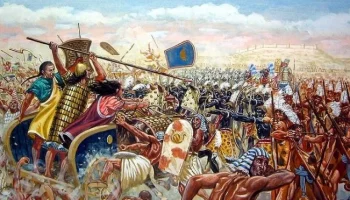In an earlier post we introduced the Bible and Violence Project (see here.) Today we are happy to introduce two more contributors: Kudzai Biri and Alison Jack.
Kudzai Biri (PhD) is Associate Professor in the Department of Religion, Philosophy and Ethics of the University of Zimbabwe. Her research interests are in religion and gender, religion and politics, and religion and migration. Biri is a gender activist who has worked with marginalized women, those living with HIV and Aids, and with under-privileged children and orphans. She has published widely and her recent book, ‘The Wounded Beast?’ Single Women, Tradition, and the Bible in Zimbabwe (open access, available here) is a call for indigenous practitioners and the Church to promote justice, uphold the dignity of single women/mothers in their diverse categories and shun violence against them. Her current research focusses on World Christianity, in particular, Pentecostal/Charismatic African Diasporic communities. Biri is writing the chapter on Violence and Leviticus. She can be contacted on: kudzibiri@gmail.com

My chapter on violence in Leviticus seeks to bring to the fore the need for contextual reading and analysis. This is key in promoting peace and gender justice, against the background of literal reading and interpretation practices of scriptures, which have proved disastrous, especially on the continent of Africa, a continent ravaged by man-made cycles of poverty and deprivation, wars and migration, gender-based and sexual violence, and many other forms of violence and inequality. It is a call for re-introspection. In a continent perceived as massively Christian, a re-reading and re-interpretation of violence in Leviticus can open ways for political and religious dialogue, cultivating hope and hence promote life-affirming theologies, perspectives and attitudes for abundant life.
_________________________________________________________________________________
Alison Jack is Professor of Bible and Literature at the School of Divinity, University of Edinburgh. A New Testament scholar by training, with a background in English Literature, she has a particular interest in the reception history and influence of the Bible in Victorian and Modern literature. Recent publications include a monograph on the Prodigal Son in English and American Literature (OUP, 2019), and articles and chapters in edited works on Gospel stories in the poetry of Seamus Heaney, the ‘weird’ in the work of James Robertson and Robert Louis Stevenson, and the role of poetry in communicating spiritual understanding. With Caroline Blyth, she co-edited The Bible in Crime Fiction and Drama (T&T Clark, 2019). Her own contribution to the volume focuses on ‘Tartan Noir’ and the place of scripture in the work of Peter May. Alison is writing the chapter on Violence, the Bible, and Crime Fiction.

In my contribution to the volume I’ll be considering the interaction between violence and the Bible in recent crime fiction, from PD James’s Death in Holy Orders to C. J. Sansom’s Revelation, and beyond. The prevalence of apocalyptic themes in these novels will be explored through the lens of Robert Harris’s recent novel, The Second Sleep, which invites us to consider ways in which defining biblical narratives, such as from the Book of Revelation, are exploited by those in power to justify acts of violence. Crime fiction, of course, almost always has at least one violent act at its heart and encourages the reader to engage with the ‘detective’ to work out who committed this act and, crucially, why. The satisfaction of solving the crime at times obscures or overcomes the shock of the violent act, often perpetrated on a female character. I’ll be exploring whether and to what ends the overlay of biblical narratives such as Revelation in this fiction justifies power imbalances between perpetrator and victim in the examples of crime fiction selected. Are these familiar and not so familiar texts simply further clues to be ‘unlocked’ or are they employed to signal something more disturbing? Read my chapter and find out!






